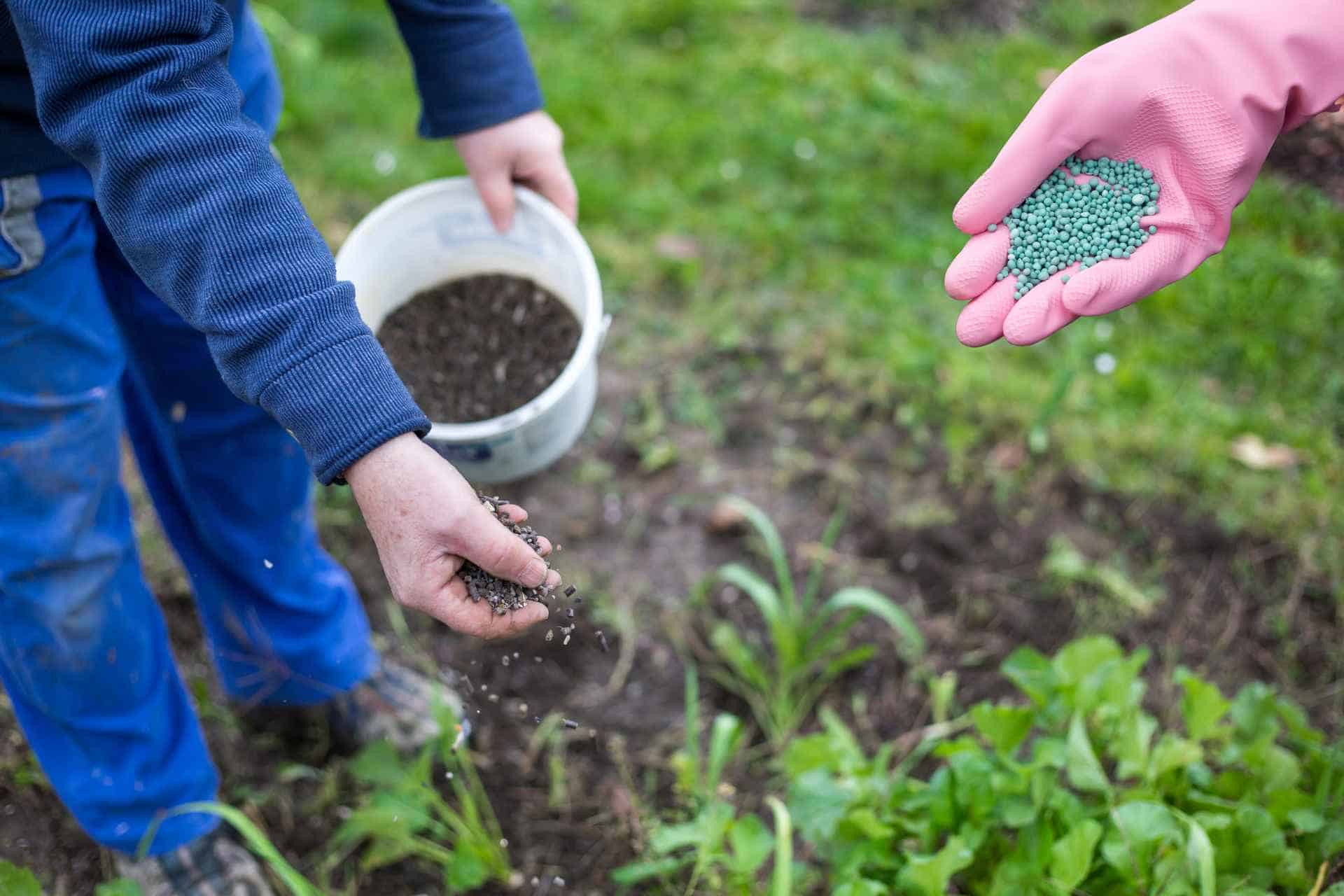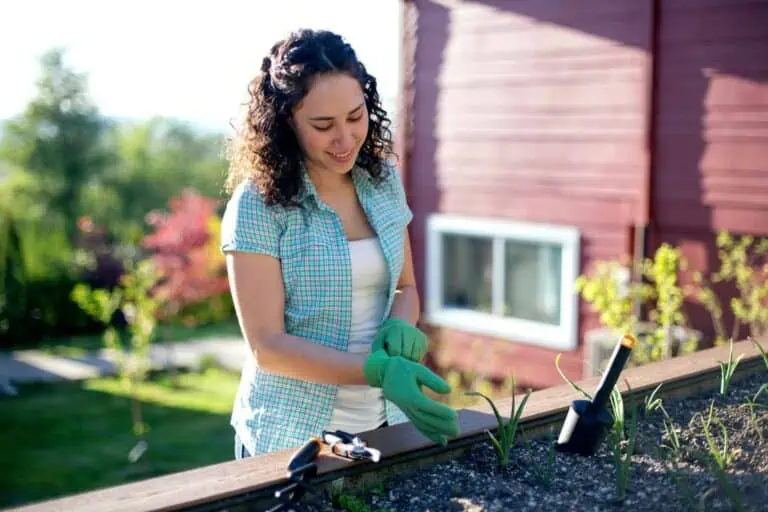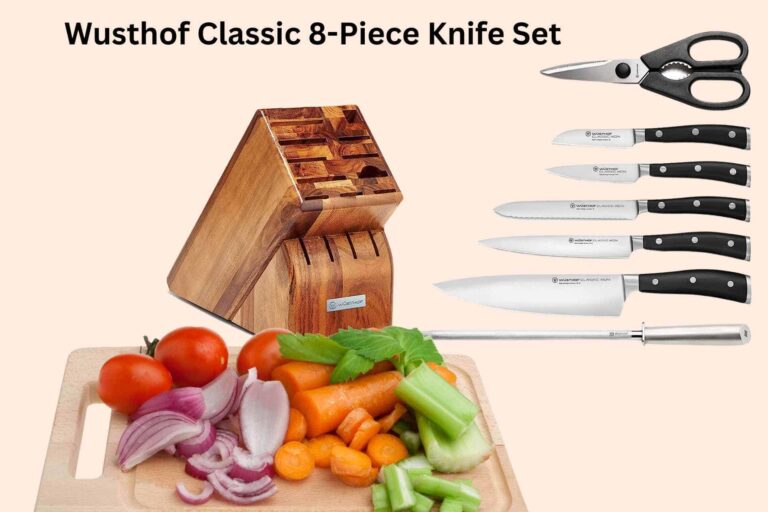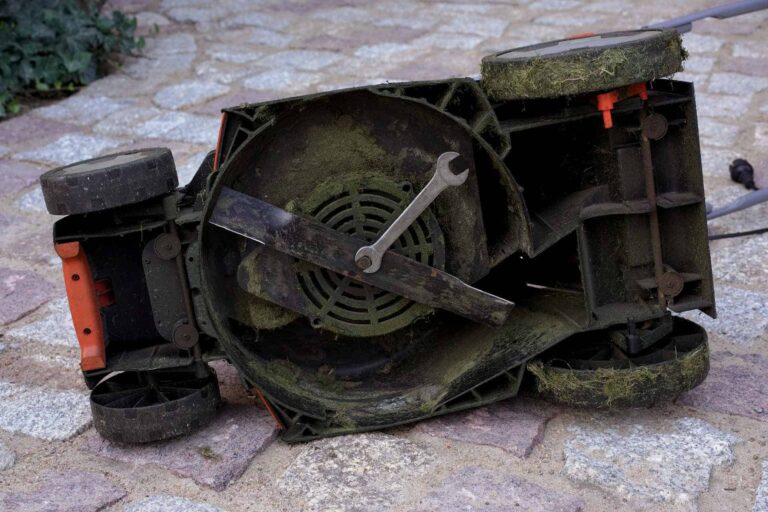10 Best Garden Fertilizer for Boosting Vegetables Growth
Selecting the best garden fertilizer for vegetables can be a game-changer for your home gardening experience. Fertilizers play a crucial role in the growth and health of vegetables, offering essential nutrients and enhancing soil fertility. With the right fertilizer, you boost the vitality and yield of your vegetable garden, leading to lush, nutritious produce. This guide aims to break down the top 10 fertilizers for your garden, helping you make an informed choice to maximize your garden’s potential.
Best Garden Fertilizer for Vegetables – 10 our top Picks
[wptb id=5526]Review of 10 Fertilizers for Vegetables
1. Dr. Earth Home Grown Tomato, Vegetable & Herb Fertilizer
Dr. Earth Home Grown Tomato, Vegetable & Herb Fertilizer is an excellent choice for those in search of an organic solution for their garden. This product is enriched with a unique blend of nutrients, including fish bone meal, feather meal, potassium sulfate, and more. What sets it apart is its TruBiotic® technology, which includes a mix of beneficial soil microbes and mycorrhizae to improve soil conditions, enhance nutrient uptake, and boost plant growth. The slow-release formula ensures that your plants are continually nourished. Remember, though, that like other organic options, it might be pricier than synthetic counterparts.
Pros
Cons
2. Osmocote Smart-Release Plant Food Plus
Osmocote Smart-Release Plant Food Plus is a must-have for any passionate gardener. This innovative fertilizer adopts a unique smart-release technology, ensuring your plants receive vital nutrients over an extended period. It contains a balanced mix of NPK (nitrogen, phosphorus, and potassium), delivering complete nutrition to a wide variety of plants. Its versatility is commendable; it’s equally effective whether you are growing flowers, vegetables, or shrubs. Additionally, it’s user-friendly, requiring only one application for up to six months of nutrient provision. This makes it a convenient and time-saving choice for busy gardeners.
Pros
Cons
3. FoxFarm Grow Big Soil Liquid Concentrate Fertilizer
FoxFarm Grow Big Soil Liquid Concentrate Fertilizer is an advanced solution designed to cater to the nutritional needs of fast-growing plants. Notably, it boasts a potent formula enriched with a high-nitrogen concentration, essential micro-nutrients, and pH balanced to maintain soil stability. The liquid concentrate ensures instant absorption, fostering accelerated plant growth and blooming. Despite its chemical nature, it is deemed safe for both indoor and outdoor plant use. However, it’s important to apply it judiciously as overuse can potentially harm the plants, and its chemical composition may not align with the preference of gardeners who favor organic products.
Pros
Cons
4. Neptune’s Harvest Organic Hydrolized Fish & Seaweed Fertilizer
Neptune’s Harvest Organic Hydrolized Fish & Seaweed Fertilizer is a distinctive blend of two naturally occurring and highly nutritious fertilizers, fish and seaweed. This eco-friendly product is high in macro and micro-nutrients, providing a comprehensive nutritional profile for plants. The combination of fish and seaweed encourages robust plant growth, improved yields, and enhanced natural resistance against pests and diseases. As an organic product, it is safe for children, pets, and wildlife, making it a responsible choice for sustainable gardening. However, as with other organic fertilizers, it may carry a fishy smell that some gardeners may find off-putting, and its price tag may be higher than that of synthetic counterparts.
Pros
Cons
5. Down To Earth All-Natural Vegetable Garden Fertilizer
Down To Earth All-Natural Vegetable Garden Fertilizer is an excellent choice for the eco-conscious gardener. With its blend of all-natural ingredients, this product provides balanced and sustained nutrition for a wide variety of vegetables, promoting robust growth and high yields. It is particularly efficient for root vegetables, leafy greens, and vine plants. Unlike synthetic fertilizers, this product does not cause salt build-up or soil imbalance. However, as it is an all-natural product, it requires more time to break down and become available to plants. Some gardeners might find its smell earthy and a bit strong, but it dissipates quickly once mixed into the soil.
Pros
Cons
6. Humboldts Secret Golden Tree All-In-One Advanced Nutrient Solution
Humboldts Secret Golden Tree All-In-One Advanced Nutrient Solution is a robust, multipurpose liquid fertilizer that boosts plant growth and productivity. This solution, which is suitable for all types of plants, works by enhancing nutrient absorption and increasing photosynthesis. It can repair damaged or sick plants, speed up the growth of slow-growing plants, and increase the yield of fruit or vegetable-bearing plants. Despite its effectiveness, this fertilizer is more expensive than other options on the market. Additionally, as it’s a concentrated solution, inaccurate dilution can lead to plant burn.
Pros
Cons
7. Southern Ag – Liquid Copper Fungicide
Southern Ag – Liquid Copper Fungicide is an effective solution to combat fungal and bacterial diseases in plants. Ideal for both home and commercial growers, this product is particularly beneficial for treating diseases such as downy mildew, leaf spots, and blights. The fungicide works by creating a protective barrier which prevents the spores from developing and spreading the disease. However, it is crucial to follow the recommended application rates, as overuse may result in copper accumulation which can be toxic to plants. Furthermore, it should be noted that while this product is highly effective in disease prevention, it does not mend plants that are already seriously infected.
Pros
Cons
8. Scotts Super Bloom Water Soluble Plant Food
Scotts Super Bloom Water Soluble Plant Food is a robust fertilizer designed for enhancing blooming and growth in flowers and plants. With a high phosphorus content, this product encourages vigorous growth and vibrant blooms, making it particularly effective for flowering plants. Its water-soluble nature allows for easy absorption, delivering the needed nutrients directly to the roots. However, as with any potent product, there are concerns; overuse or misuse can potentially harm the plants by creating nutrient imbalances or causing root burn. It’s also slightly more expensive than some other fertilizers in its category.
Pros
- High phosphorus content encourages vigorous growth and vibrant blooms.
- Water-soluble for easy absorption.
- Suitable for all flower types.
Cons
- Potential for nutrient imbalance or root burn if misused.
- Slightly more expensive than other options.
9. Burpee Organic Bone Meal Fertilizer
Burpee Organic Bone Meal Fertilizer is an all-natural product that provides a slow, steady release of nutrients to help plants grow stronger and healthier. Rich in phosphorus and calcium, it is particularly beneficial for flowering plants, promoting robust blooms and enhanced root development. Its organic composition makes it a safe, eco-friendly option for gardeners aiming for sustainable practices. However, it is important to apply it judiciously as overuse can lead to nutrient imbalance in the soil. Additionally, its organic nature may attract pets and certain wildlife, a potential consideration for those with garden visitors.
Pros
Cons
10. Jobe’s Organics Fruit & Citrus Granular Fertilizer
Jobe’s Organics Fruit & Citrus Fertilizer is an excellent choice for your vegetable garden. It’s a fast-acting, granular fertilizer that provides your plants with a boost of nutrition right when they need it. Containing a unique mix of beneficial microorganisms, this fertilizer helps to break down complex materials into simple nutrients that your plants can easily absorb. It’s organic and environmentally friendly, making it an excellent choice for gardeners who wish to cultivate their crops in a sustainable manner. Plus, it’s particularly effective on fruiting vegetables like tomatoes and peppers, enriching the soil and promoting hearty, flavorful produce.
Pros
Cons
Things to Consider When Choosing a Fertilizer
When choosing a fertilizer for your garden, several factors should be taken into account to ensure the health and vitality of your plants.
Plant Type: Different plants have varying nutrient requirements. For instance, flowering plants often require high levels of phosphorus, while leafy greens may need more nitrogen.
Nutrient Content: Fertilizers are labeled with a N-P-K ratio indicating the percentage of nitrogen (N), phosphorus (P), and potassium (K). Choose a fertilizer with a ratio that fits your plants’ needs.
Organic or Synthetic: Organic fertilizers are derived from natural sources and are eco-friendly. Synthetic fertilizers, on the other hand, are manufactured and may provide nutrients more quickly.
Release Speed: Fertilizers can be either slow-release, providing nutrients over time, or fast-release, giving a quick nutrient boost.
Soil pH: Some fertilizers can alter soil pH. It’s important to test your soil’s pH to choose a fertilizer that will keep it balanced.
Organic vs Non-Organic Fertilizers
Choosing between organic and non-organic (synthetic) fertilizers is a crucial decision that affects the overall health of your garden. Organic fertilizers, derived from natural sources like plants, animals, or minerals, are environmentally friendly and improve soil health over the long term. They release nutrients slowly, providing a steady supply of nutrients over a longer period of time, and contribute to soil structure, promoting the growth of beneficial microorganisms.
Contrarily, non-organic fertilizers are chemically manufactured and are designed to give a rapid nutrient boost. They contain high concentrations of nutrients that are readily available to plants, resulting in quick, noticeable growth. However, this rapid release can sometimes lead to nutrient runoff, potentially polluting nearby water sources. Additionally, synthetic fertilizers don’t contribute to long-term soil health or support microbial life.
How to Apply Fertilizers for Best Results
Applying fertilizer effectively begins with knowing your soil. Conduct a soil test to identify nutrient deficiencies and then select a fertilizer that fits those needs.
When it comes to application, proper timing and distribution are crucial. Most plants benefit from springtime fertilization when they are actively growing. However, it’s important to follow the specific guidelines for each plant type.
Fertilizer should be spread evenly over the soil surface. Avoid getting it on plant leaves, as this can cause burning. For larger plants and trees, spread the fertilizer out to the drip line—the area directly below the outer edges of the tree’s branches.
Water the area thoroughly after fertilizing to help dissolve the fertilizer and carry it into the soil. However, avoid overwatering as it can wash away the nutrients.
Remember, more isn’t necessarily better when it comes to fertilization. Over-fertilizing can lead to excessive growth, damage plant roots, and harm the environment. Always adhere to the recommended amounts and reapply only as needed.
Conclusion
In conclusion, both organic and synthetic fertilizers have their respective advantages and drawbacks. Organic fertilizers enrich the soil, nurture beneficial microbial life, and provide a steady, slow-release supply of nutrients. However, they may take longer to show visible results. On the other hand, synthetic fertilizers can provide a quick nutrient boost and noticeable plant growth, albeit with potential environmental consequences and without contributing to long-term soil health. The best choice of fertilizer largely depends on your specific soil needs, plant requirements, and overall gardening goals.
Ultimately, the choice between organic and synthetic fertilizers extends beyond immediate plant growth to embody a gardener’s values and vision for their garden. For those who prioritize environmental sustainability and long-term soil health, organic fertilizers may be the preferred choice. However, in situations requiring immediate nutrient availability, such as in poor soils or for fast-growing crops, synthetic fertilizers may become necessary. A balanced approach could involve using synthetic fertilizers sparingly for an initial nutrient boost, then maintaining soil health over the long term with organic fertilizers and practices like composting and cover cropping. Before deciding, gardeners should consider conducting a soil test to understand their soil’s nutrient profile and make informed decisions. Remember, a thriving garden is born from the harmony between the soil, the plants, and the gardener.
Frequently Asked Questions about Fertilizers
What is the main difference between organic and synthetic fertilizers?
Organic fertilizers derive from natural sources such as compost, manure, bone meal, or kelp, whereas synthetic fertilizers are man-made and typically contain a specific ratio of nutrients. Organic fertilizers not only provide nutrients to the plants but also enhance the soil structure and its microbial life. Synthetic fertilizers, on the other hand, offer a quick nutrient boost, leading to rapid plant growth.
Is it possible to overfertilize with organic fertilizers?
Yes, despite being natural, over-application of organic fertilizers can lead to nutrient imbalances, potentially causing harm to your plants and the environment. It’s always wise to follow the recommended application rates.
Are synthetic fertilizers harmful to the environment?
Excessive use of synthetic fertilizers can lead to nutrient runoff into nearby water sources, potentially causing harm to aquatic ecosystems. Further, they may contribute to soil degradation over time as they do not improve the soil structure or its microbial life.
Can I use both organic and synthetic fertilizers in my garden?
Yes, a balanced approach can be beneficial. For instance, you might use a synthetic fertilizer for an initial nutrient boost and then maintain soil health over the long term with organic fertilizers and practices like composting and cover cropping.
How can I know what type of fertilizer my soil needs?
Conducting a soil test can provide valuable information about your soil’s nutrient profile. This can help you make informed decisions about what type and quantity of fertilizer to use.


















